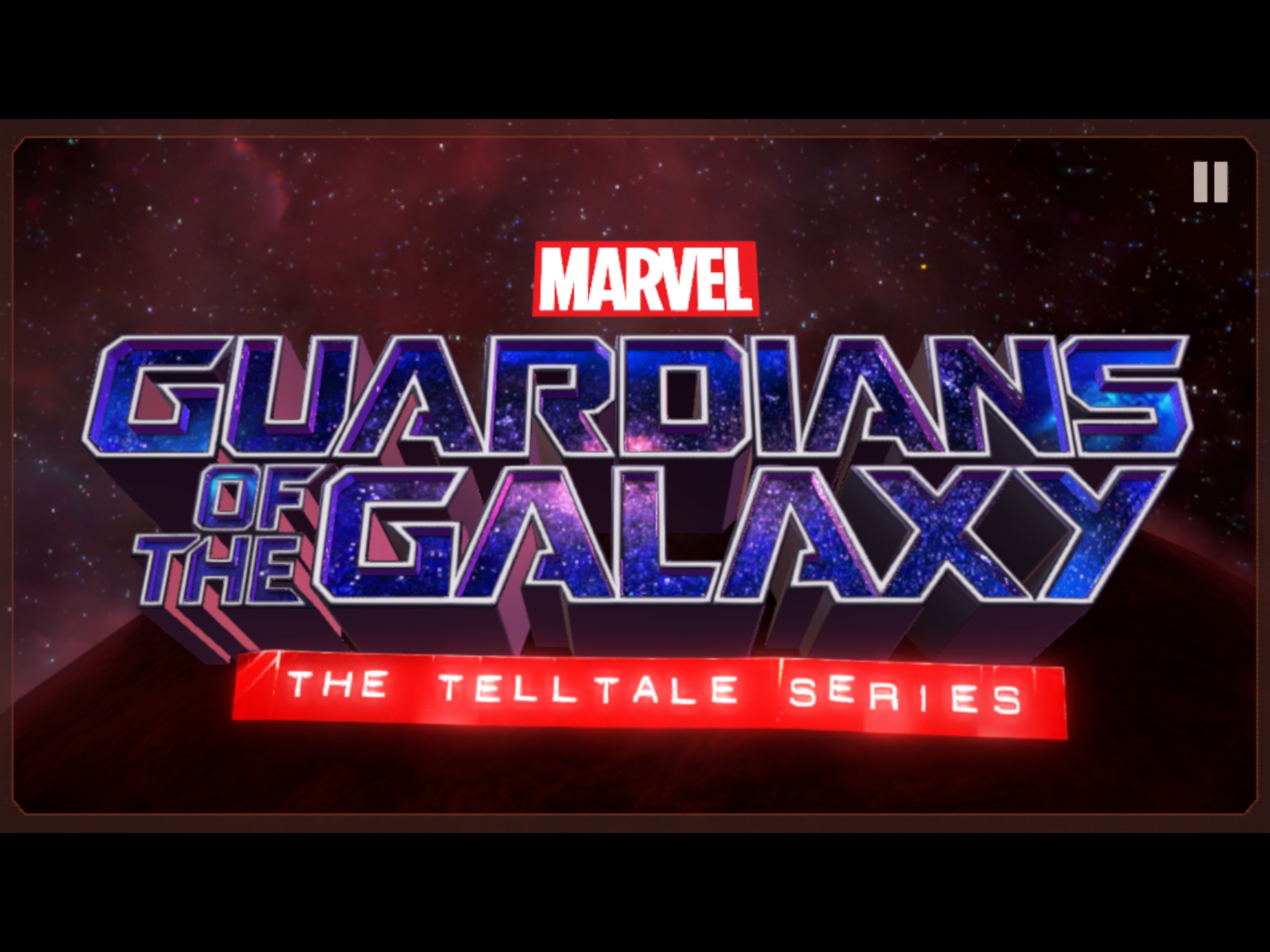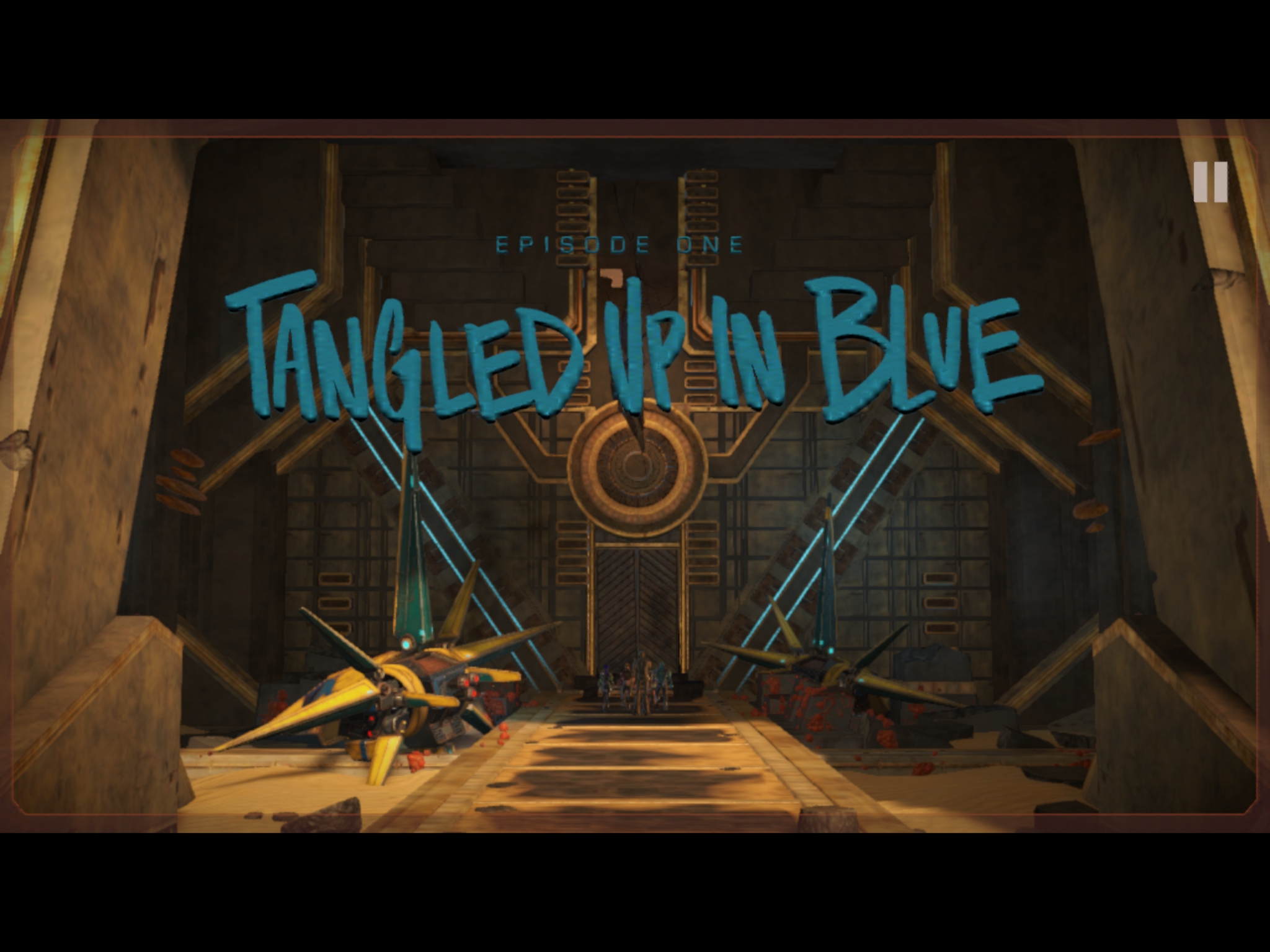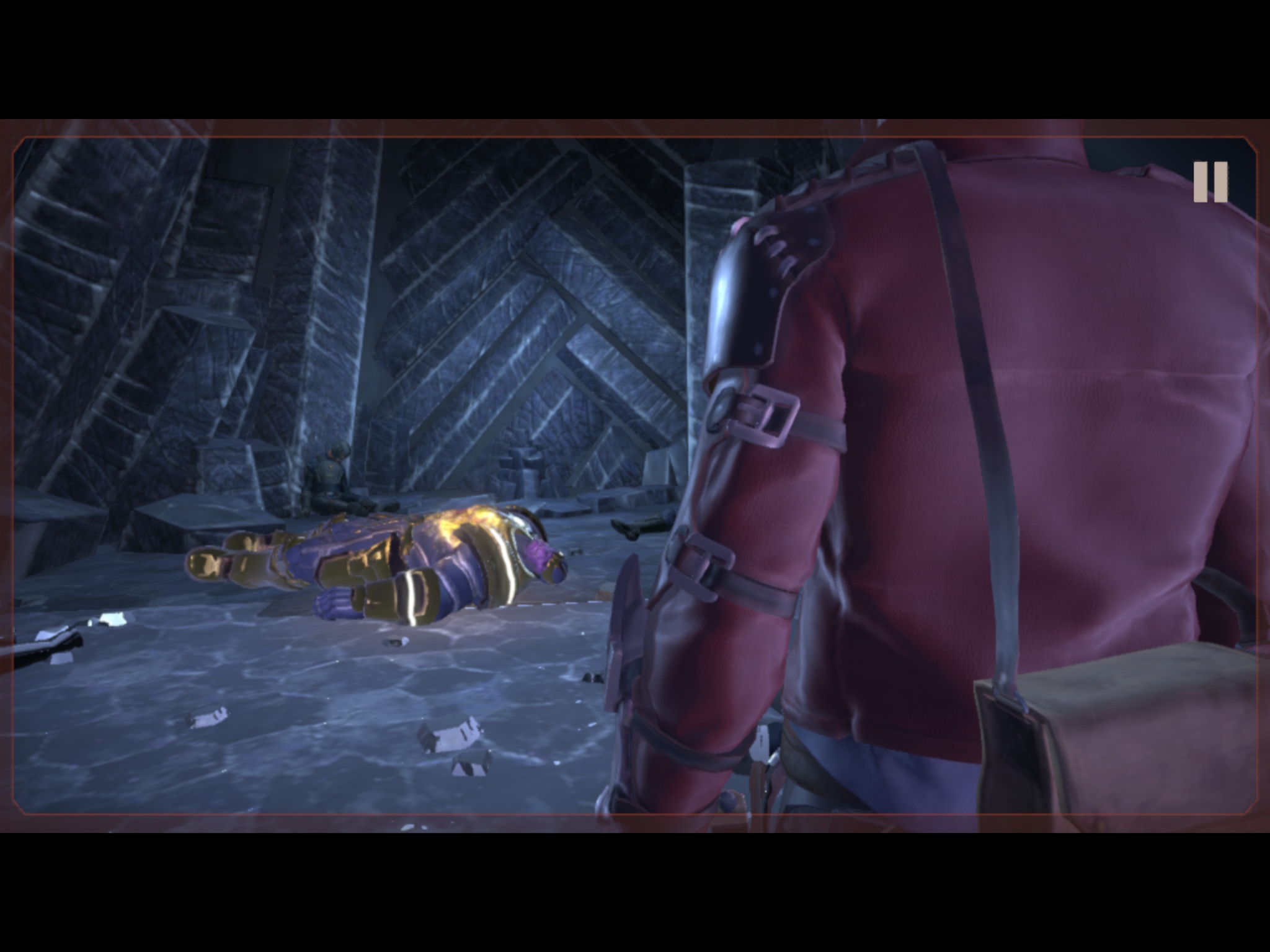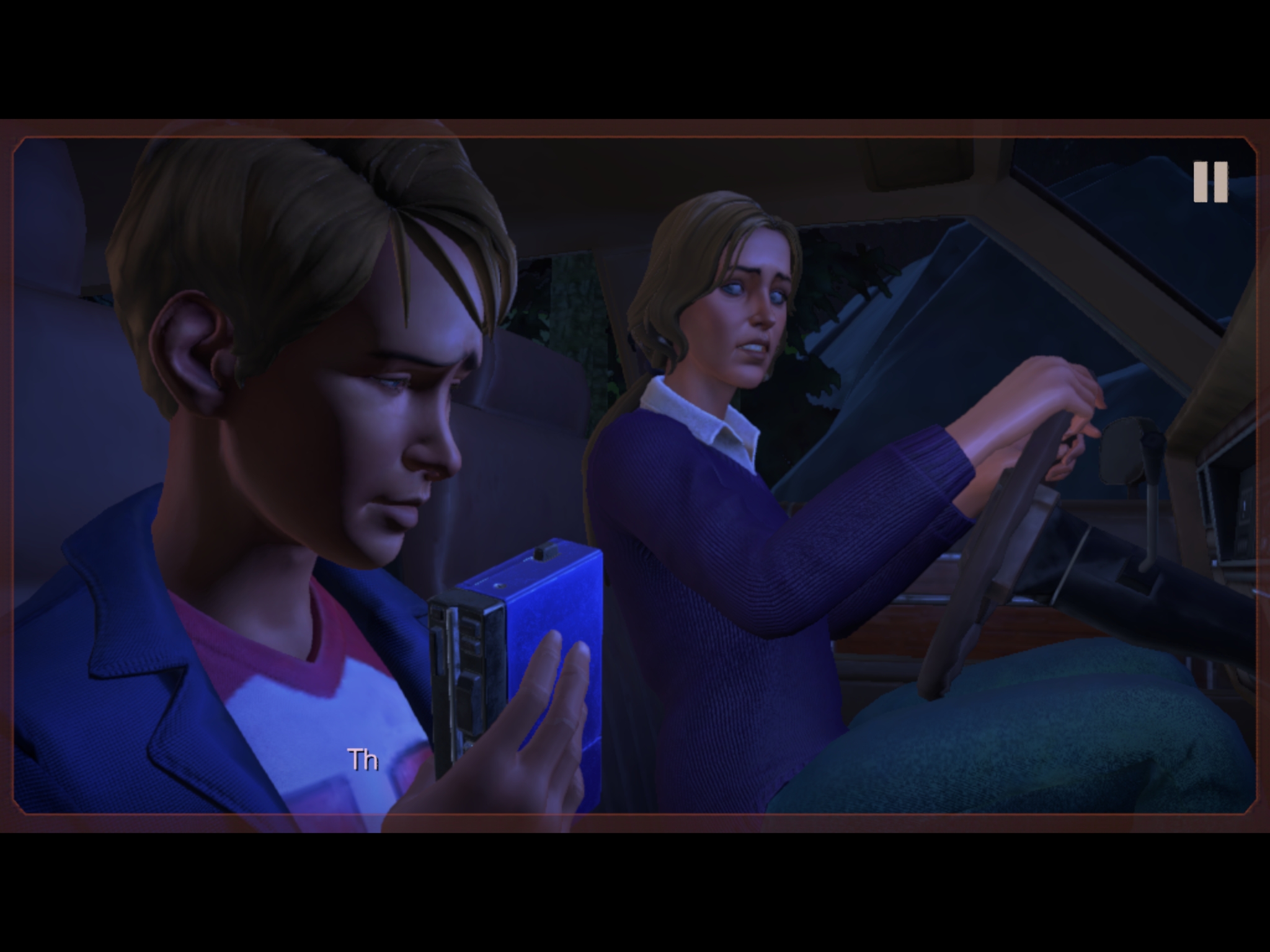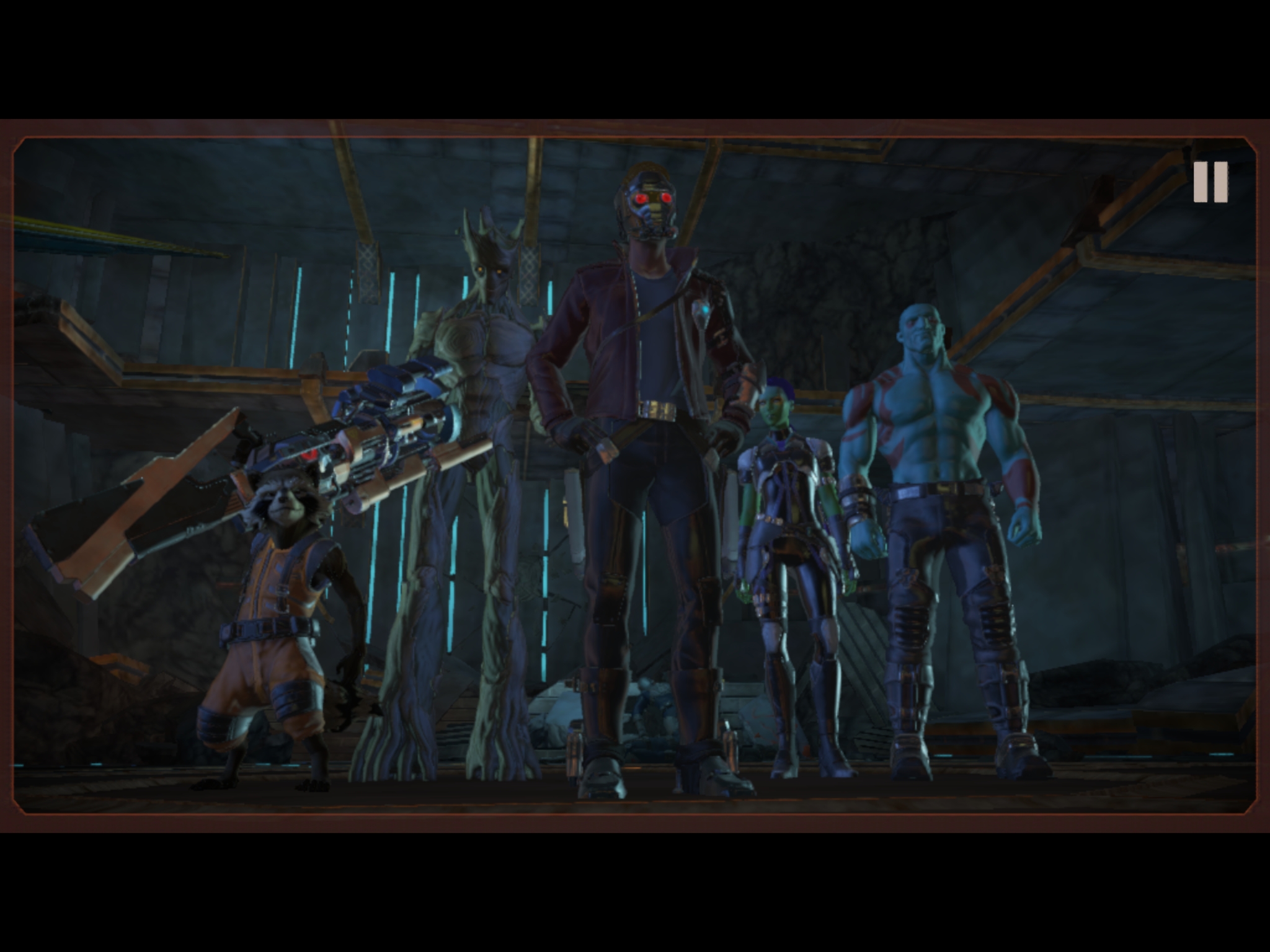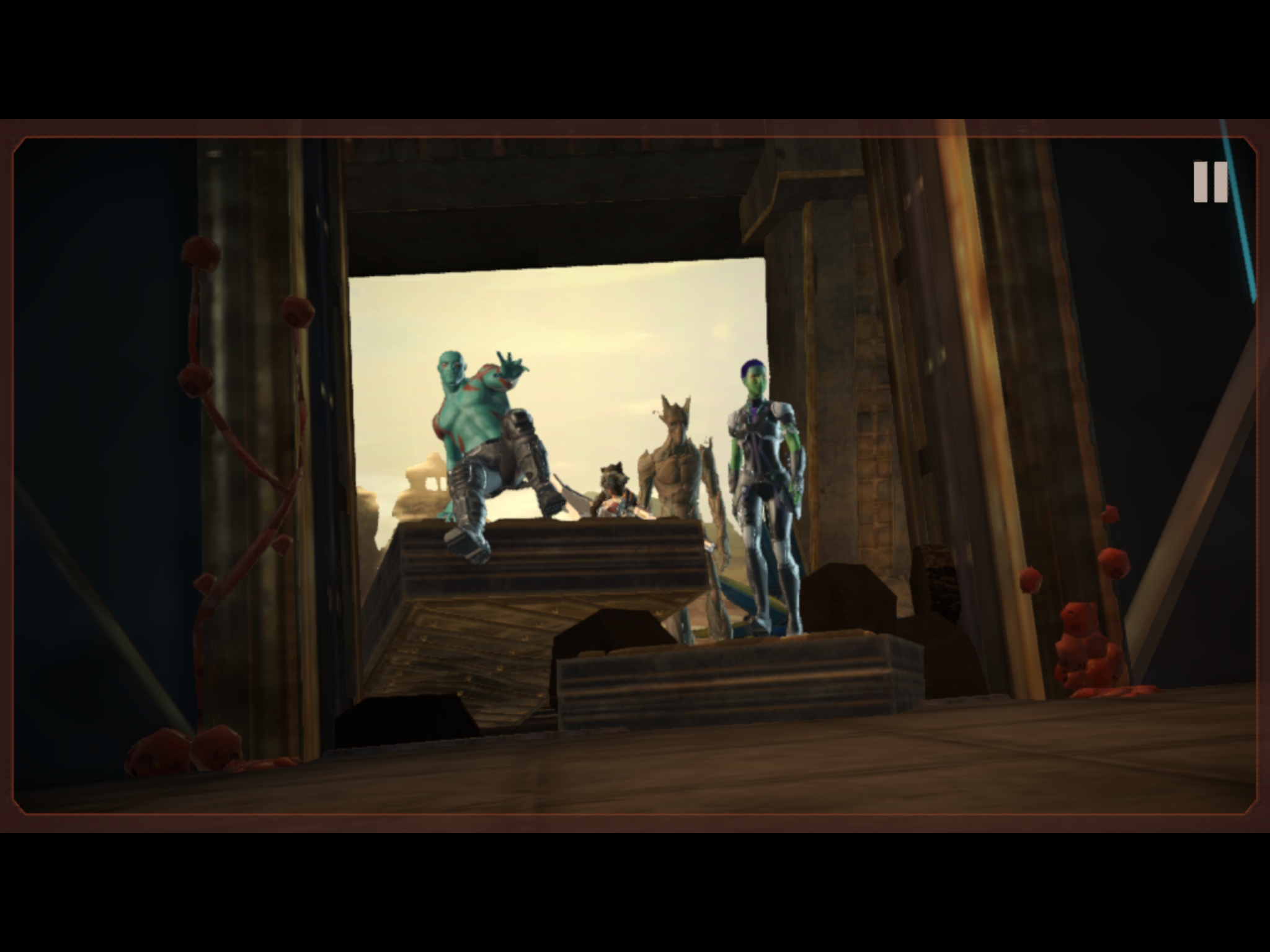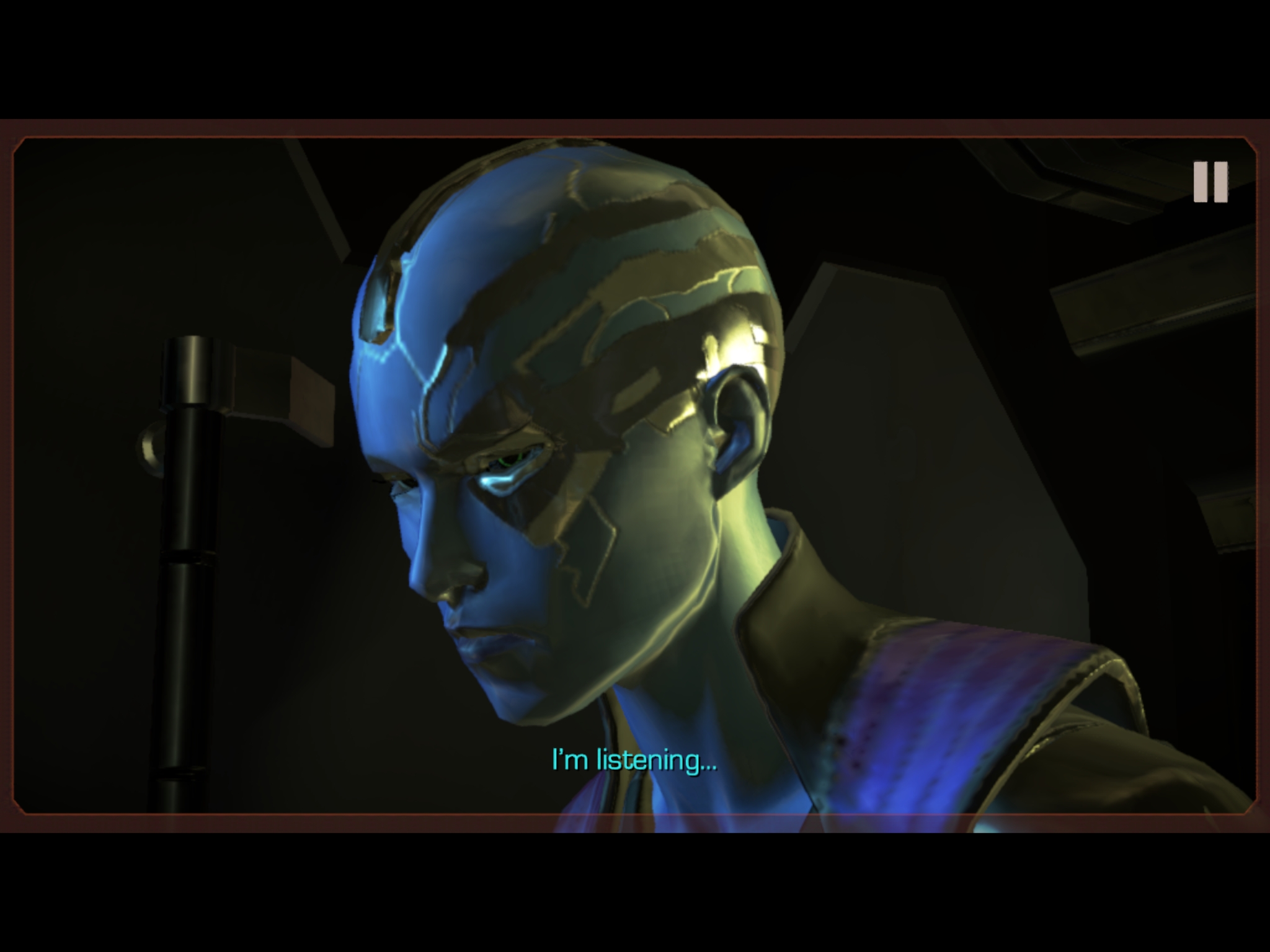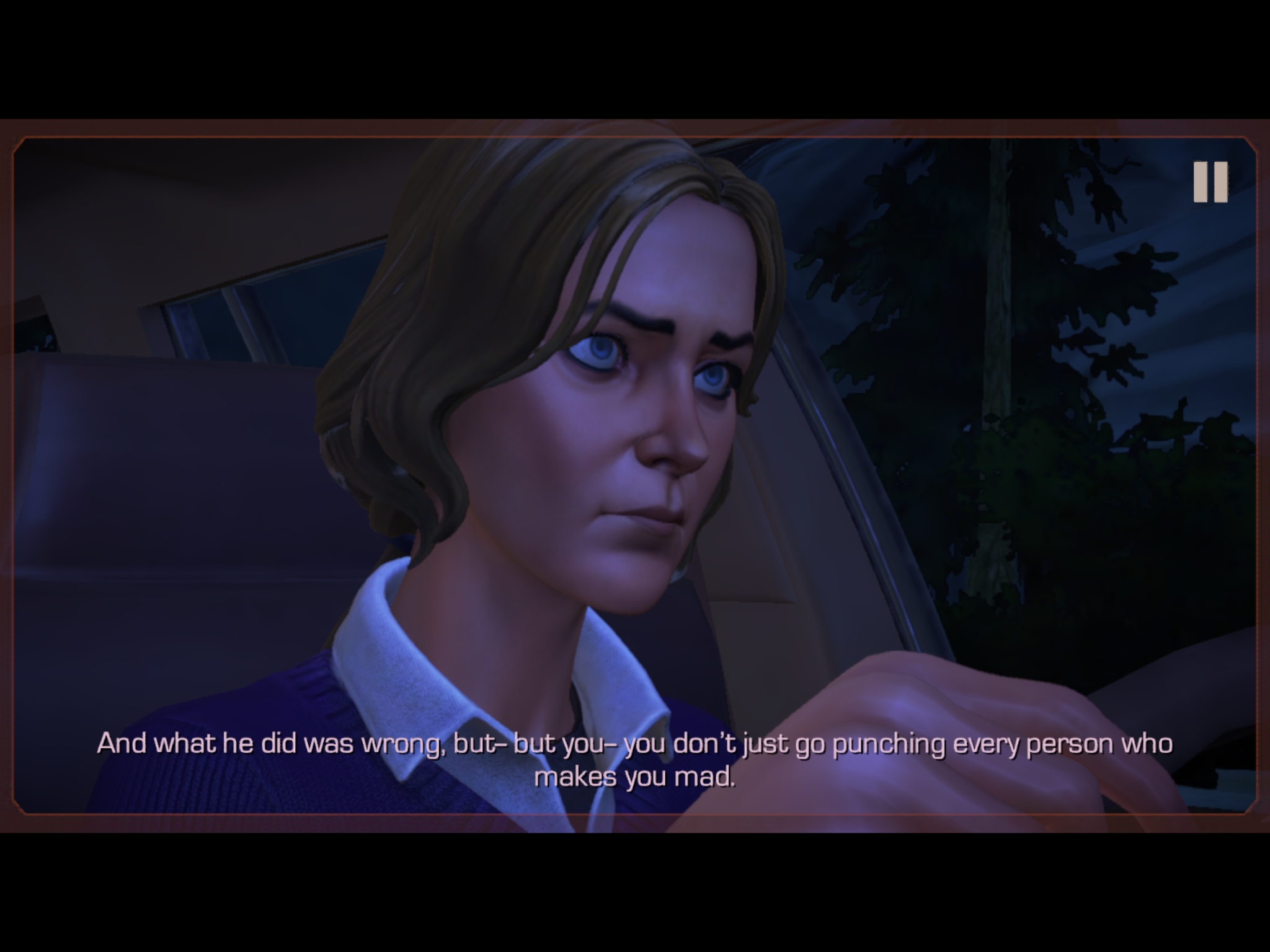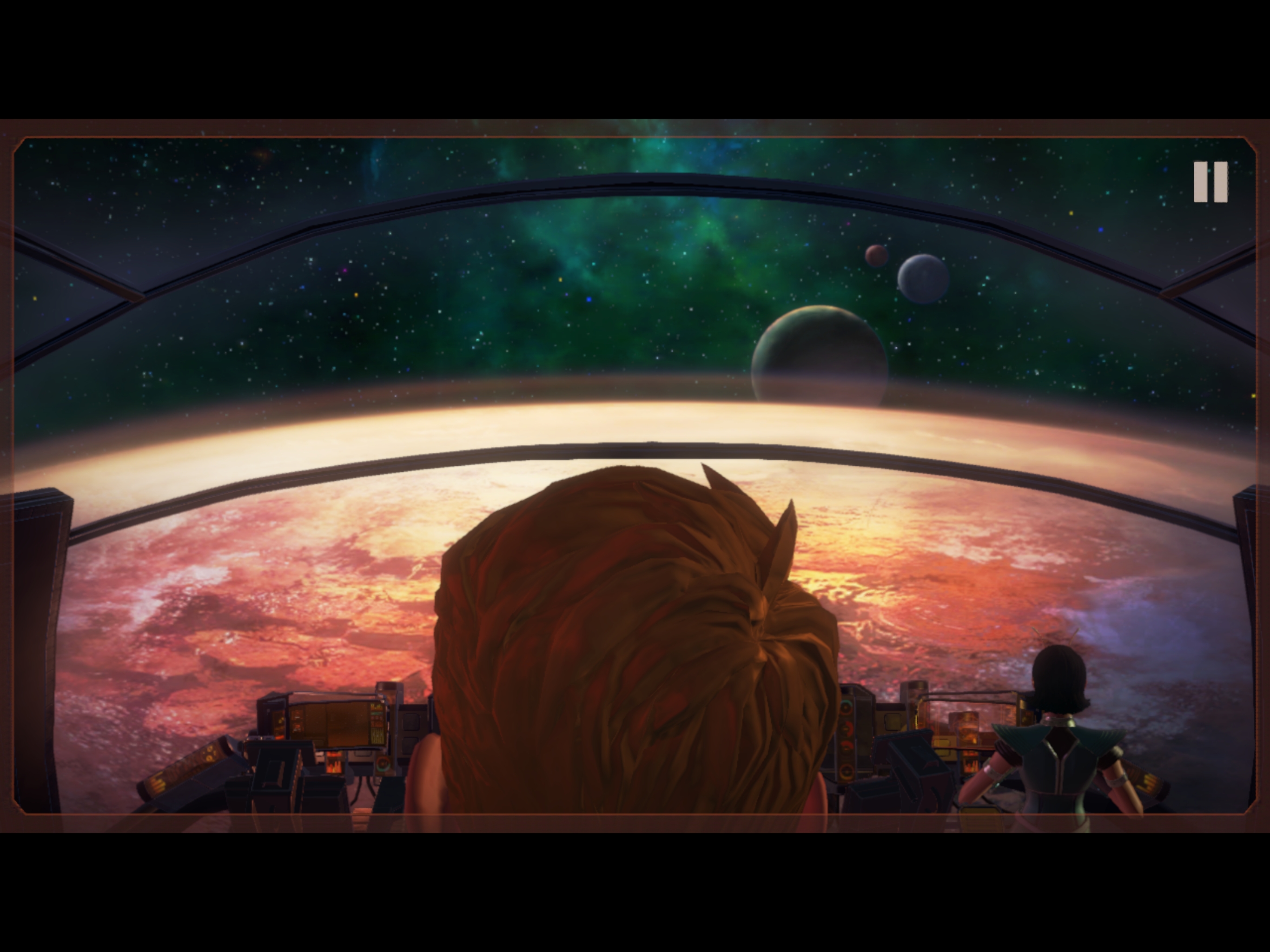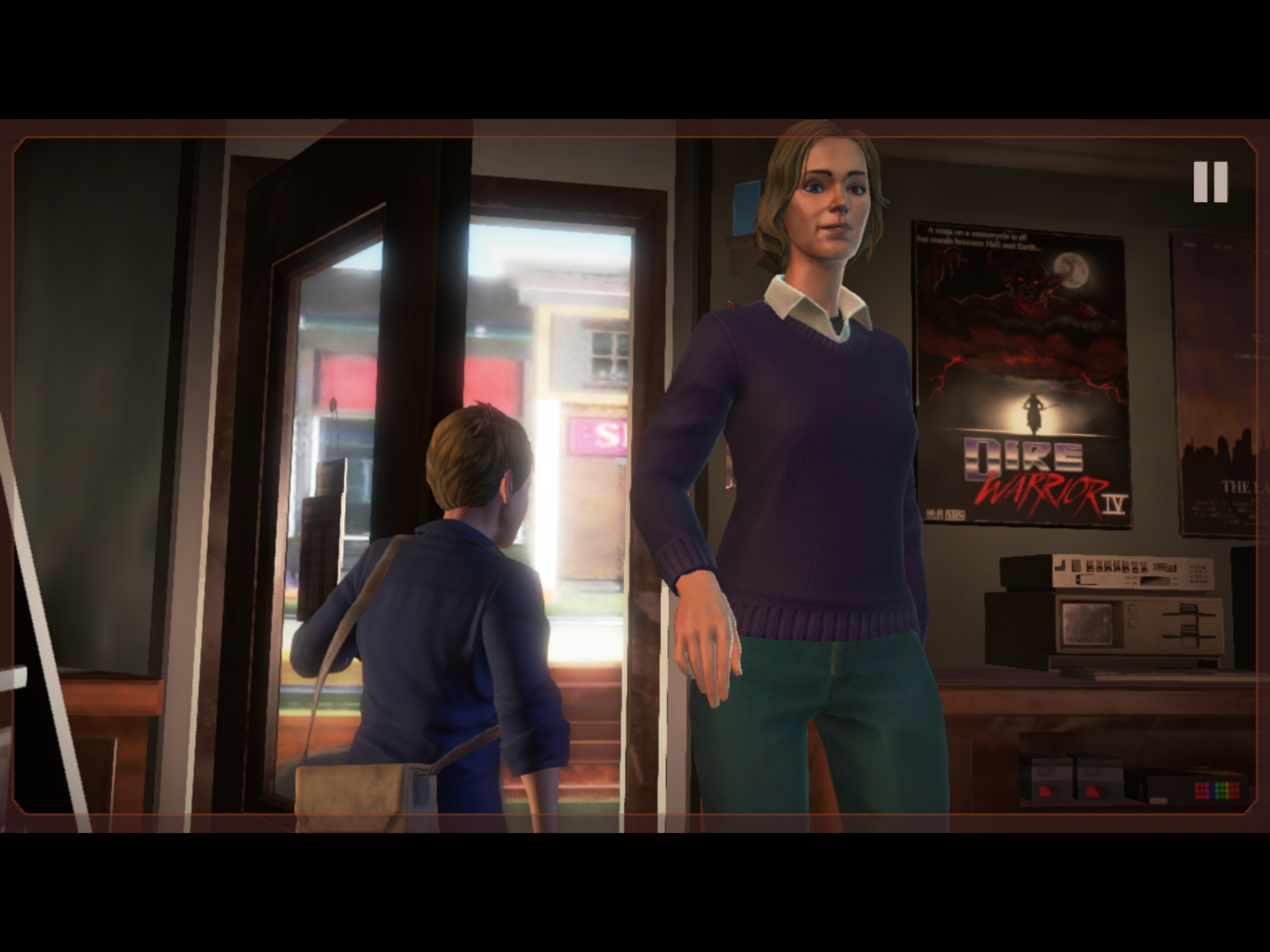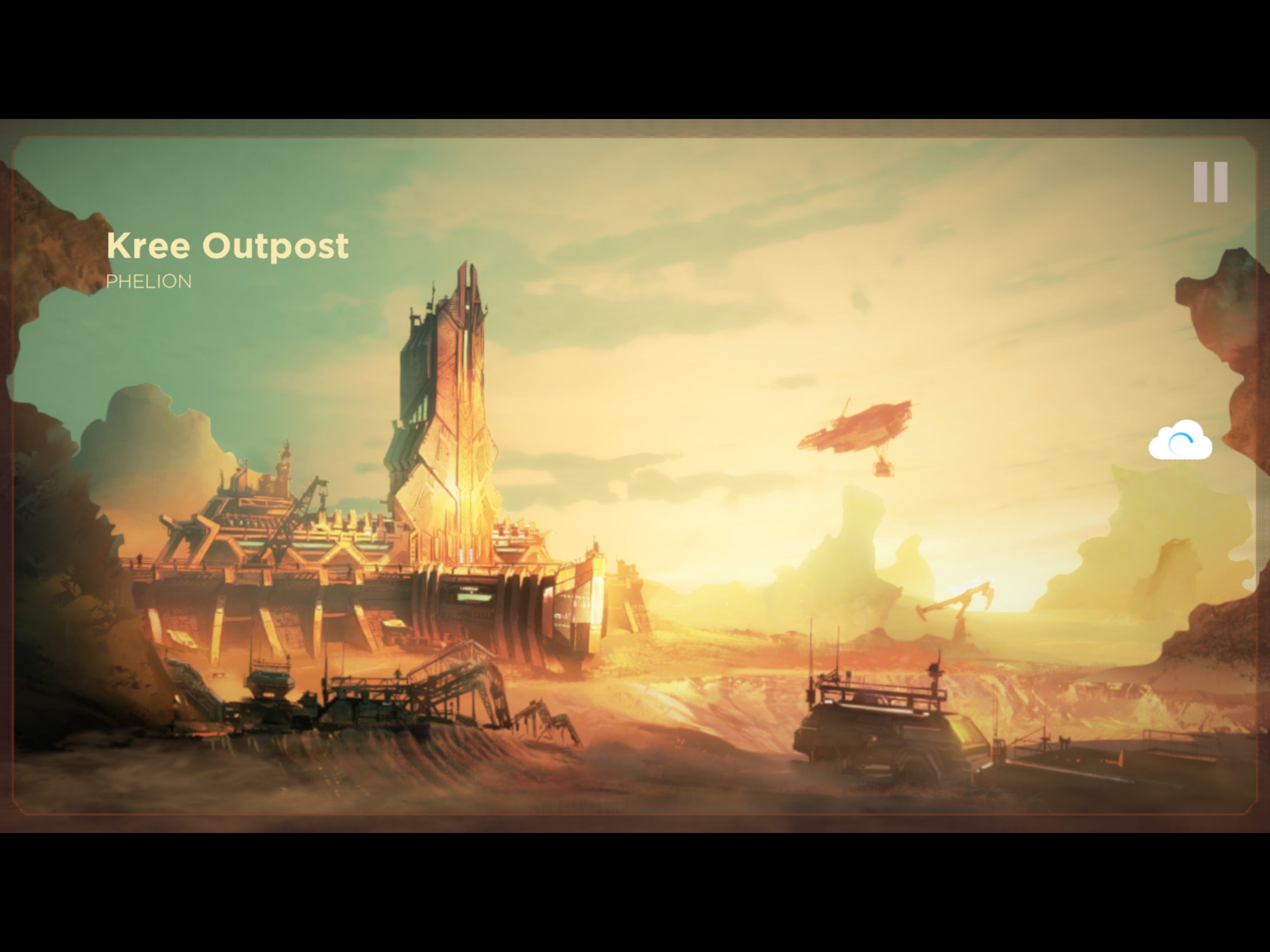 Despite their intriguing stories and clever use of IPs, Telltale’s games have been a mixed bag on iOS primarily because of technical issues. While most of the series were either fine or at least playable, Batman: The Telltale Series left a pretty bad taste on players’ mouths because it was pretty close to unplayable on more than one instance. Well, I’m glad to say that Marvel’s Guardians of the Galaxy: The Telltale Series ($4.99) (from now on Guardians of the Galaxy) plays just fine on my iPad Air 2, despite a couple of very brief—but unobtrusive—stutters. I don’t know if this means Telltale has tinkered with the engine enough to make it work well or Guardians of the Galaxy was just less demanding than Batman; what matters is that Episode 1 of Guardians of the Galaxy should play fine on most of your devices. I will be reviewing the whole series, so expect the review score to change as more episodes release.
Despite their intriguing stories and clever use of IPs, Telltale’s games have been a mixed bag on iOS primarily because of technical issues. While most of the series were either fine or at least playable, Batman: The Telltale Series left a pretty bad taste on players’ mouths because it was pretty close to unplayable on more than one instance. Well, I’m glad to say that Marvel’s Guardians of the Galaxy: The Telltale Series ($4.99) (from now on Guardians of the Galaxy) plays just fine on my iPad Air 2, despite a couple of very brief—but unobtrusive—stutters. I don’t know if this means Telltale has tinkered with the engine enough to make it work well or Guardians of the Galaxy was just less demanding than Batman; what matters is that Episode 1 of Guardians of the Galaxy should play fine on most of your devices. I will be reviewing the whole series, so expect the review score to change as more episodes release.
Episode 1: “Tangled Up in Blue"
I’m glad the technical issues seem to be a thing of the past because the first of this new series, and Telltale’s first venture into the Marvel universe, is entertaining and manages to balance humor, gravity, and meaningful choices quite well. At the same time, though, most of the action scenes feel almost unnecessary, and the game’s engine is definitely showing its age, which results in occasionally wooden-looking characters. Add to that lines that aren’t always delivered very convincingly, and you have a good—but not great—episode. If you like the Telltale formula, you’ll enjoy Episode 1; if you don’t, this won’t be the one to draw you in.
In case you aren’t familiar with Guardians of the Galaxy, this peculiar splinter of the Marvel universe definitely fits the definition of a team of misfits. You’ve got Star-Lord, a human (?), the ex-assassin Gamora, the destructive and humorless Drax the Destroyer, the sentient tree-like creature called Groot, and Rocket Raccoon, an anthropomorphic raccoon. As you can tell, these aren’t the kind of characters you’d expect to see team up, and Telltale’s Guardians of the Galaxy definitely plays on that idea, but more on that in a bit. If you’ve enjoyed the recent Guardians of the Galaxy movie, you’ll be glad to know that the Telltale series has a similar feel; the humor that comes out of such a team of misfits transitions well into the game, so expect silly jokes, funny lines, and entertaining moments (like the incredibly slow elevator scene). In terms of humor, Guardians of the Galaxy will remind you of Tales from the Borderlands more than any of the other Telltale series, and that’s a good thing.
Spoilers from here onward, so proceed with caution.
While the cinematic version of Guardians of the Galaxy has been teasing The Mad Titan Thanos as its ultimate baddie, the Telltale version cleverly jumps to the end of that storyline and starts the series with the confrontation between the Guardians and Thanos, a confrontation that quickly leads to the surprising death of Thanos. Starting the series from the (possible) end of the movie version of the franchise frees the writers to head to new directions rather than retread the same ground, and that decision pays dividends, at least in the first episode.
As I mentioned earlier in the review, Telltale focuses on how in a “normal" universe (whatever that means in a story about aliens) the Guardians wouldn’t be a thing because of how different they are and how different their motives are. What was holding them together was the threat of a common enemy, Thanos, so with The Mad Titan gone, the group starts to splinter very early on in the episode. I don’t need a crystal ball to know that throughout the series one of the recurring themes will be the Guardians splitting up and temporarily going their own way. By the mid-point of the first episode, Star-Lord has to take sides two to three times, which I’m sure will come back to bite him as the series progresses.
With Thanos becoming more of the plot device than a central character, the episode gradually shifts its attention to the Eternity Forge, the artifact that will be at the core of the whole series. This Kree artifact has all kinds of yet-unexplained powers, but its most important power in terms of narrative development is that it allows the writers to shift the narrative from outer space back to Earth during Star-Lord’s childhood. This quite-unexpected turn of events acts both as a way to diversify the narrative but also as a way to add depth to the character of Star Lord while at the same time introducing his backstory to new players.
The other interesting departure from most other previous Telltale series is how throughout the episode you get to make big either/or decisions that have immediate impact. While you do get the “X will remember that" kind of choices, there are many others that force you to pick one of two major threads; for instance, you get to either sell Thanos to the Collector or turn his body over to Nova Corp, each decision having immediate consequences but also setting you on a collision course with other members of the Guardians. There are other similar decisions that reminded me of Batman in that you could only do X or Y, and the results are immediate. This sense of immediacy between choice and consequence is refreshing and makes your choices feel more meaningful.
So, narratively the first episode works well, setting up an interesting story arc while departing from the events of the Guardians movie. What about gameplay? I’m glad to say that Telltale has finally learned how to put together good action scenes, something that the developer has struggled with in previous series. The prompts you get on screen are appropriate and, more importantly, actually work. I’ve had more than one instances in previous series where my swipes simply wouldn’t register, but I’m glad to say I’ve had no such issues in Guardians of the Galaxy.
However, while they might work, these quick-time events increasingly felt extraneous to the rest of the game and, more often than not, got in the way of the narrative rather than developing it. Because there’s absolutely no challenge to them and failing them barely has any consequences, they feel a bit like drudgery work. I’m starting to wonder whether removing them all together and adding more character interaction and dialog will benefit future Telltale series.
Visually, Guardians of the Galaxy suffers from a pretty dated engine; there’s a distinct lack of sharpness in the visuals that I’m guessing makes the game playable in lower end devices, although lower end is relative since the game won’t play on devices below an iPhone 6 and iPad Air 2. Still, I’d have liked the game to look better overall, with better-looking characters and more expressive facial animations. These Telltale series are all about character interactions, so it’s important that the characters’ faces show the multitude of emotions the narrative clearly describes. And the character development wasn’t helped by the occasionally stilted line delivery. The soundtrack starts off very promisingly—Guardians of the Galaxy is famous for its fantastic music—but then is more restrained than I would have liked. Still, it’s entertaining to start the game with Electric Light Orchestra playing in the background.
Overall, the first episode of Marvel’s Guardians of the Galaxy: The Telltale Series is off to a good start both narratively and in terms of performance. Whatever was going on with Batman seems to be fixed now, which is definitely good news for fans of the Telltale formula. The story seems poised to split into multiple, interesting threads, and the powers of the Eternity Forge can definitely make for some unexpected narrative turns. Whether the story will deliver over the long run remains to be seen; what I can tell you is that Tangled Up in Blue is a promising start. At the same time, it’s hard to avoid wondering whether Telltale needs to rethink its narrative/action balance and how much the game would have benefited from an updated engine.
Rating: 4/5
After a pretty interesting episode 1, with strong narrative threads and promising conflicts, Telltale returned to the Guardians of the Galaxy universe with episode 2, Under Pressure, and the episode definitely delivers on its title. Episode 1 started stoking up the fires that are threatening to tear the Guardians apart—especially since there’s no Thanos keeping them focused—and Under Pressure continues on the same trajectory, slowly ripping seam after seam. The Eternity Forge continues to be the main driver of the plot, and the mystery as to its purpose and ultimate use is definitely deepening. Slightly improved action scenes also helped the episode, although I honestly would like to never see another puzzle scene in a Telltale game again.
My version of Under Pressure (since some big Episode 1 decisions steer the narrative in different directions in Episode 2) started with our first sighting of Yondu, a very important character in the Guardians movies (don’t worry, no spoilers for that). As in the first episode, when Star Lord touches the Eternity Forge, he gets to relive his Earth-bound past, which, as I said in my review of episode 1, is a great way of fleshing out the character more. However, this time around the memories triggered by the Eternity Forge are altered and actually reflect events that just transpired in episode 1, furthering the mystery of what exactly the Eternity Forge’s powers are and what Star Lord’s mother’s role is in this whole story.
I continue to enjoy this short trips to Earth because they propel the narrative forward by giving Star Lord a very important reason to hold on to the Eternity Forge but also because they provide some welcome breaks to the rather furious pace of the episode, and since I know there are no quicktime events coming while on Earth, I can better digest the plot up to that point. Never underestimate moments of relatively lull in narrative-heavy games like this one.
As I talked about in my review of episode 1, I could see that Rocket wasn’t going to stick around long because I had chosen to side with Gamora in a couple of occasions. Indeed, he soon grabs the Eternity Forge and one of Yondu’s ships and heads off on his own. Following him leads to another Eternity Forge-induced flashback that helps flesh out Rocket as a character and turns him into something more than a wisecracking raccoon. His backstory includes some of the saddest moments in the game so far, and it was a nice surprise that the writers decided to turn Rocket into a character with actual feelings. What’s next though, Groot’s romantic entanglements with a branch?
And because conflict between the Guardians isn’t enough apparently, Under Pressure also adds Nebula, Gamora’s “sister," to the mix. Since she’s the only one who can read the ancient Kree on the Eternity Forge, she becomes indispensable to Star Lord while at the same time raising the tension between Gamora, Nebula, and Drax; in other words, we have another spark in the tinderbox. She will definitely be a bigger part of the story in the next episodes.
The episode ends in quite a big cliffhanger (that I won’t spoil), and it definitely made me look forward to Episode 3, which should be coming soon. It’s to the credit of the writers that I can’t figure out what’s just beyond episode 2, which speaks to the strong writing and interesting story arcs so far. I found the narrative twists of episode more interesting than those of the opening one, which does make sense since the writers are building up tension as we go along.
Was everything good in episode 2 though? Well, I have to again complain about some of the action scenes, especially the one puzzle sequence that slowed the game to a crawl and had me walking around trying to figure out how to access a door. While puzzle sequences like that make sense in a game like the Minecraft series, it really felt out of place in Guardians and offered nothing to the story. And while the action scenes were better in episode 2 than episode 1, I still feel that Telltale could do away with the quick-time events altogether and nothing would be lost.
Overall, Under Pressure was a stronger episode than the opening one, and I am interested to see where the story goes. I like how this superhero story takes the time to humanize the characters and make us care more about them, although it will be a tricky balance to keep; after all, most people want to play the game to live through a superhero story, and spending too much time on backstories can break the flow a bit too much. The third episode should be coming soon, and I foresee more tension and broken friendships, but I’m hoping for even fewer puzzle sequences.
Rating: 4.5/5
Episode 3: More than a Feeling
When I started playing Telltale’s Guardians of the Galaxy, I never thought that I would be spending so much time on earth instead of space, and you know what? It actually makes the game better. Episode 3 of the series raises the bar and offers laughs, mysteries, and conflict galore; the montage scenes it pulls off are a great idea that’s executed fantastically. And while I was expecting that by this episode the Guardians would be no more, the writers surprised me by keeping the team together, which does make for more entertaining moments.
Episode 3 took me back to Earth and to Star-Lord’s childhood, a trip that worked great both in breaking up the monotony of space but also, and more importantly, fleshing out Star-Lord even more and helping us see behind the jokes and silly dance moves. The characters of Guardians of the Galaxy can easily slide into being comedic for comedy’s sake and a bit on the flat side, so I’m glad to see the writers continuing to give us the characters’ backstories in a way that both makes us care more about them but also moves the narrative forward.
Normally, we would have to listen to loads of exposition to learn more about the characters in the series, which isn’t the most exciting part of a game. By focusing the narrative on the Eternity Forge, though, the writers got the perfect tool that allows them to offer plenty of backstory for the characters while still pushing the plot forward. You see, we learn in this episode that Mantis, the latest character to be added to the series (and one you know if you’ve watched the movie), has been using the Eternity Forge as a way to reach out to Star-Lord, and she’s been using his memories to draw him to the temple where she’s imprisoned.
This twist in the narrative finally explains the strange plot turns we played through, where Star-Lord’s dead mother appeared to be alive. While this twist cheapened those moments, it did help propel the narrative forward and introduced another funny character into the mix while still maintaining the focus on the Eternity Forge.
The power of the Eternity Forge to make characters relive their memories also worked to help me better understand the sibling rivalry between Nebula and Gamora, a story with much more nuance than I expected. And by giving us the opportunity to see Gamora and Nebula’s conflict from both perspectives, the game once more helped add depth to the game’s many characters. This matters because one of my fears when I started playing the series was that I would have a hard time caring about any of the characters, given how large the cast of the series is. I’m glad to say that the writers made me care about the Guardians, and that definitely makes the game more interesting to play and the various choices feel more consequential.
What I also liked most about episode 3 is how Telltale let the narrative lead the way and gave QTE action scenes the backseat, which is wise given how those scenes aren’t that interesting and still suffer from an inability to register swipes consistently. The few action scenes that do appear in the episode are done pretty well. I really liked how the writers inserted the kind of silly montage scene you would expect from a movie into the game while still letting you interact with what was going on on screen. Instead of swiping to kill, though, you swipe to get Mantis back to work or stop Rocket from jabbering. It was a nice break from the usual fight scenes and a nice example of how quick-time events can be used to serve different narrative purposes.
Moments like the montage and various other interactions are served well by how the voice actors are growing into their roles. The voices sounded more believable in this episode (especially when compared to the first one), and overall the performances served the story well. The episode’s emotional moments were delivered convincingly, and the whole cast overall performed well. The action scenes and the narrative as a whole were also well-served by an engine that seemed better tuned than previous episodes and series, and I’m hoping Telltale is finally figuring out how to give us well-functioning mobile ports. Granted, I played the game on the latest iPad Pro, but I’ve had issues with Telltale games even on that device, so the fact episode 3 played smoothly is a good sign, I hope.
Overall, episode 3 was very entertaining, with the right mix of funny and somber moments and characters that continue to evolve along convincing paths. An emphasis on narrative over action and the inclusion of choices that matter significantly helped episode 3 stand out within the series. I hope the writers continue to privilege narrative over action sequences because that helps highlight what Telltale does best. Looking forward to seeing where the story goes from here, but I’m now definitely in for the ride.
Rating: 4.5/5
